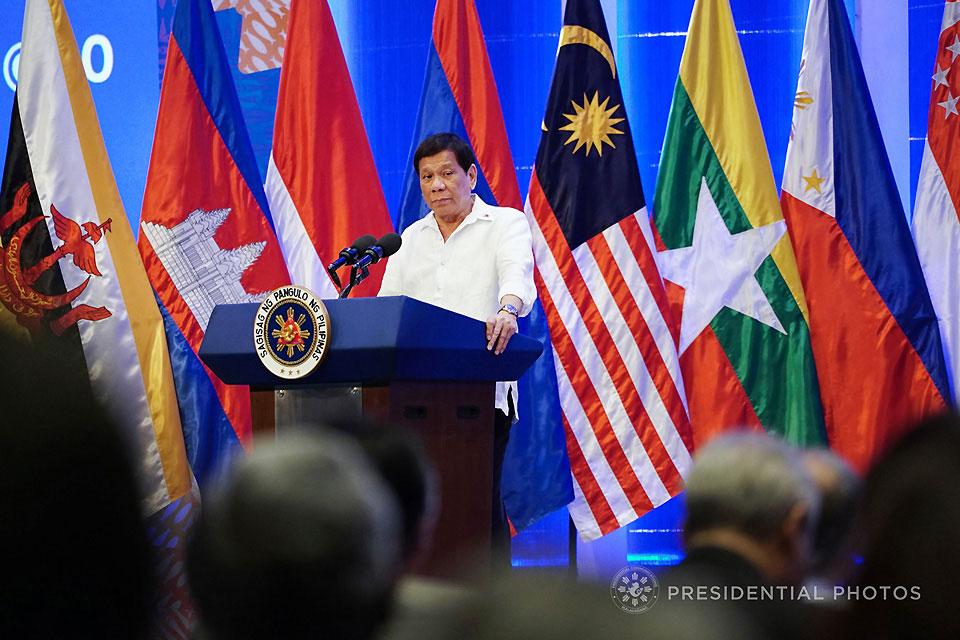ASEAN as ‘model of regionalism, global player’
When President Rodrigo Duterte accepted the chairmanship of the Association of Southeast Asian Nations (ASEAN) Summit last year, he highlighted one of the six thematic priorities of the summit: making the 10-member bloc a “model of regionalism” and “a global player.”
But what exactly did Duterte mean?
For political analyst Ramon Casiple, Duterte was envisioning an ASEAN that would “emulate” his administration’s take on foreign policy.
“I think what Duterte means is for ASEAN to emulate the Philippine independent foreign policy,” Casiple said in a text message.
Asked what pursuing an independent foreign policy would mean for the 10-member bloc, Casiple said: “There is no ideal in the world of global politics. There are only trade-offs. Non-aligned ASEAN will benefit from good relations with other countries but it has to strengthen itself alone.”
For his part, Professor Jay Batongbacal, director of the University of the Philippines Institute for Maritime Affairs and Law of the Sea, noted that ASEAN was able to transcended beyond its purely regional role to attain global status.
“ASEAN is already a global player; it has been for many years as shown by its various multilateral engagements as a group,” Batongbacal said.
“Despite some challenges particularly in the political and security realm, it has remained cohesive and is credited with preventing/managing disputes between its members since the mid-70s,” he said.
Batongbacal however said that the ASEAN has a “very long way” to go in becoming a model of regionalism.
“ASEAN has been criticized as not being as strong as other regional groups (e.g. EU, OAS), and ASEAN historically sets itself apart from those other models (e.g., it doesn't want to copy EU) and has always wanted to find its own way, neither wanting to be like others nor be a model for anyone,” he said.
Batongbacal was referring to the European Union and the Organization of American States.

'Easternization'
Duterte however recently drew a comparison between the ASEAN and the EU despite his tirades against the European bloc.
In a speech last October 31, Duterte said heads of ASEAN member-states dream of a “cohesive partnership.” "And, as I have said earlier, if the European Union can do it, why can’t we?” Duterte said.
He said the voices of the European countries seemed to matter more in international affairs, pointing out “little, if at all, is being listened to on our front.”
“Maybe this time, or in the succeeding years, in the fullness of God’s time, since the world is now veering to the Easternization of the world—it’s coming, it’s just around the corner,” Duterte added.
For Batongbacal, ASEAN will continue to “evolve at its own pace.”
“At the rate it is going, and given its core principles, i think it's still a very long way off from that (strong regional bloc). ASEAN continues to evolve at its own pace, and its focus is still mainly economic cooperation,” he said.
“That leaves the development of regional political and social cohesion to its future generations,” Batongbacal added.
Duterte, chairman of the ASEAN, will be hosting heads of state and government at the 31st ASEAN Leaders Summit and Related Meetings next week.
Aside from the ASEAN being a model of regionalism and a global player, there are other five thematic priorities discussed by ASEAN leaders throughout this year: peace and stability in the region; maritime security and cooperation; inclusive, innovation-led growth; ASEAN’s resiliency; and a people-oriented and people-centered ASEAN. —KG/VDS, GMA News




